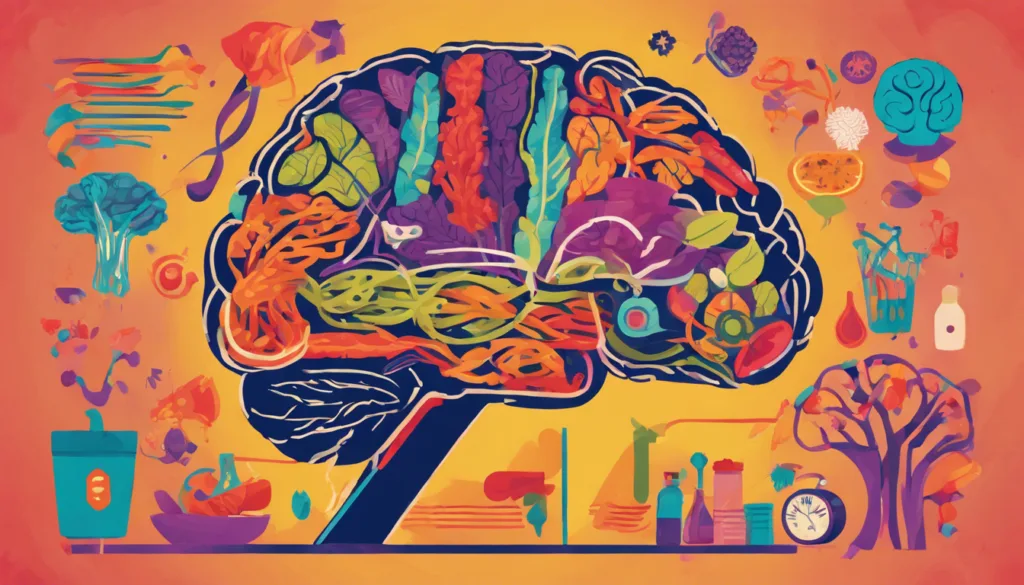Unlocking Alzheimer’s: How Genetics and Lifestyle Choices Impact Your Risk

Understanding Alzheimer’s prevention strategies in Canada is crucial for families aiming to reduce cognitive decline through genetics and lifestyle adjustments. Alzheimer’s disease is more than just a medical condition; it’s a profound journey that alters the fabric of family life.
For those who have witnessed the gradual cognitive decline of a loved one, the emotional toll can be devastating.
As researchers delve deeper into the complexities of Alzheimer’s, two primary factors continually emerge at the forefront: genetics and lifestyle choices.
Understanding these elements can empower families to better navigate the uncertain waters of Alzheimer’s risk.
This article will explore how specific genetic markers, particularly variations in the APOE gene, play a critical role in a person’s susceptibility to Alzheimer’s, while also emphasizing the profound impact that everyday lifestyle choices can have on brain health.
By combining insights into genetic predisposition with actionable lifestyle adjustments, we can take a proactive stance against the threat of Alzheimer’s, giving families hope and strategies for maintaining cognitive vitality.
Receive quality home care matches today in minutes
Key Takeaways
- Genetic predispositions, particularly involving the APOE ε4 allele, significantly elevate Alzheimer’s risk.
- Lifestyle choices such as diet, exercise, and social engagement can mitigate Alzheimer’s risk regardless of genetic factors.
- Adopting a proactive approach to health by understanding both genetics and lifestyle can empower individuals against cognitive decline.
Understanding Genetic Factors in Alzheimer’s Risk
Understanding Genetic Factors in Alzheimer’s Risk is essential for families striving to navigate the challenges of cognitive decline.
Alzheimer’s disease, a devastating condition affecting millions, is influenced by various factors, including genetic predispositions.
One of the most significant genetic markers is found in variations of the APOE gene, particularly the APOE ε4 allele, which has been linked to a substantially higher risk of developing Alzheimer’s.
This knowledge can be particularly poignant for families witnessing their loved ones succumb to the horrors of cognitive deterioration, as it offers insights into the biology of the disease that may help in early identification and intervention.
However, while genetics plays a crucial role, it is not the only determinant.
The article emphasizes that lifestyle choices—such as diet, physical activity, mental engagement, and social interaction—can significantly reduce the risk of Alzheimer’s, even among those with a genetic predisposition.
Adopting healthier habits and staying intellectually and socially active can help fortify brain health and improve overall quality of life.
Ultimately, this proactive approach empowers individuals and families alike, encouraging a combined understanding of both genetic risks and lifestyle modifications to combat the onset of Alzheimer’s disease.
By acknowledging and addressing these multifaceted factors, we can pave the way for healthier futures for those at risk.
Lifestyle Choices That Promote Brain Health
When considering the lifestyle choices that promote brain health, it’s essential to recognize the significant role that everyday habits play in reducing the risk of Alzheimer’s disease.
A diet rich in fruits, vegetables, whole grains, and healthy fats can provide the nutrients necessary for optimal cognitive function.
For example, the Mediterranean diet has been associated with lower rates of cognitive decline due to its emphasis on nutrient-dense foods and omega-3 fatty acids found in fish.
Regular physical exercise not only benefits the body but also enhances blood flow to the brain, stimulating the growth of new neurons and improving memory.
Additionally, engaging in cognitive activities—such as puzzles, reading, or learning new skills—helps to strengthen neural connections.
Socializing and maintaining strong relationships with family and friends can further shield against cognitive impairment, as they provide emotional support and mental challenges that keep the mind active.
Therefore, cultivating these positive lifestyle choices can create a robust defense against Alzheimer’s, empowering individuals to take control of their cognitive health, regardless of their genetic background.
With over 6 million seniors in Canada and 93% preferring to age at home, the need to bring quality home care to seniors is urgent. Families want peace of mind, and caregivers deserve respect and support.
Amicare isn’t just a marketplace—it’s a movement for better care. Join our marketplace today and receive quality home care matches in minutes.

